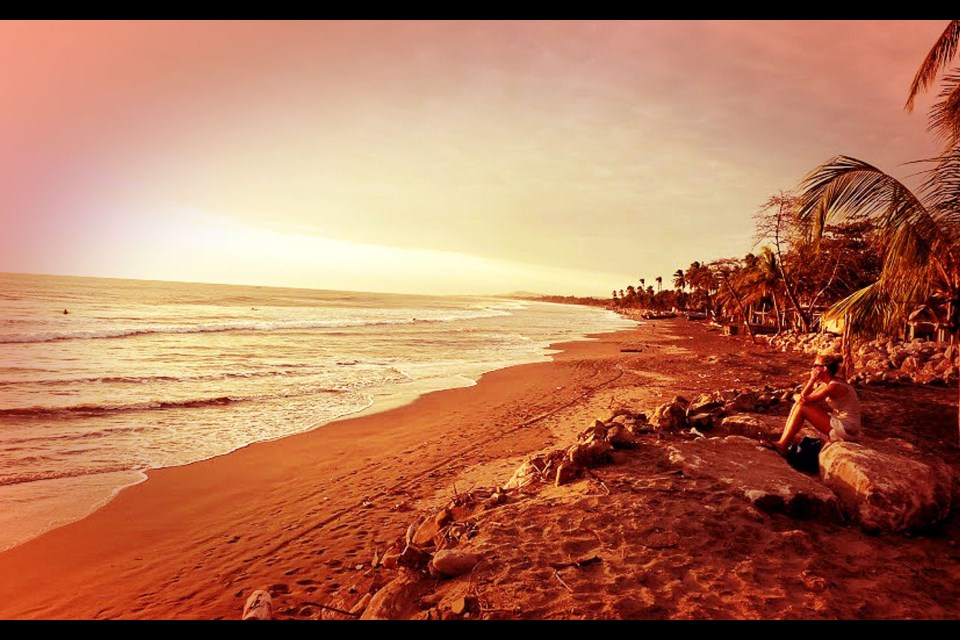Jiquilillo, a small fishing communities situated on the peninsula of Punta Caliente, offers a picture-perfect connection to authentic Nicaraguan beach life. With its rustic, unkempt charm and remote palm-lined beach on a long dusty road, it is the very definition of a sleepy fishing village.
Despite its beauty and accessibility, the area is largely undeveloped as a result of a devastating tsunami in 1992 that wiped the village out completely. Hurricane Mitch followed in 1998 adding to the devastation.
The village only has a handful of tiny 'pulperias' offering snacks and the essentials, and a couple of small family-run restaurants. Most local families live in small ranchos (palm roof huts) — the typical Nicaraguan home of this region. Many of the local families also take it in turns to host a pizza night, and whilst it isn't gourmet, watching it cook on the make shift oven over the course of several hours, with the sound of waves crashing near by is all part of the experience.
Village life is quiet and laid back; the local people are friendly and welcoming. With little access to Wi-Fi and limited electricity, the area offers the perfect place to disconnect and enjoy guilt-free lazy days in hammocks on the beach; your time only directed by the rumble of your belly and the sun in the sky.
Woken by the singing of birds and sunrise surf, you start your day under a palm roof with soft sand under your feet enjoying coconut bread, local fruits and eggs from the chickens running around the courtyard.
Fishing is still the main economy of the town as tourism slowly grows. Come sunrise the beach transforms into a fish market where every local shopkeeper and family barters for the catch and the rest is taken away in crates to the nearby Chinandega. With Jiquilillo's prominent fishing culture, you can be assured that everything you eat is fresh off the boat and delicious. For lunch or dinner we often visited the local rustic 'comedor' restaurant, which offered a simple menu of a snapper or chicken meal — we were sure that we'd probably spotted the free range chicken on offer earlier in the day strutting around.
We stayed in the conscientious, low-impact Rancho Esperanza hostel. Its projects actively benefit the village and tourists can volunteer to help out the local community as well.
Our simple bamboo cabaña was one of many in the 3.2-acre compound, with the open-sided, palm-roofed communal rancho as the centre of Esperanza life. The hostel is a hub of travellers of all ages, nationalities and backgrounds — and the family-style meal times on offer add to this sense of community, with great tales shared by other travellers.
Daily activities, apart from lounging between long siestas in the shade and turning the pages of books, include stretching your legs with long walks along the picture-postcard beaches, dotted with charming shells, and smiling locals on their bikes; getting lost in yoga poses to the warm glow of sunrise or sunset; and surfing, or just splashing around as an antidote to the heat. While the onshore winds mean the surf isn't as consistent as elsewhere in the country, Jiquilillo is a great spot for beginner surfers.
Activity picks up at dusk, when the large fishing boats roll out to the waves where they spend the rest of the evening, and fellow travellers gather on the dunes overlooking the beach, cold beer or Flor de Cana in hand, to watch the sky redden and glow, and enjoy the final moments of daylight melt away.




